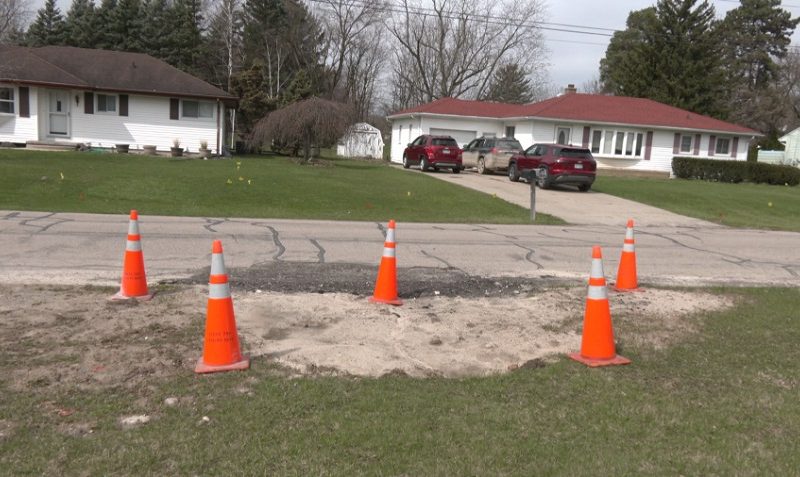DELTA TOWNSHIP, Mich. – A massive drain improvement project in Delta Township has sparked mixed reactions from local residents as officials move forward with one of the largest drainage system overhauls in Mid-Michigan’s history. The $60 million Bank Intercounty Drain Project, which spans parts of Eaton and Ingham counties, aims to replace an outdated drainage system that dates back to the 1800s. While the project promises to alleviate long-standing flooding issues, it is not without controversy, particularly due to the financial burden it will place on local property owners.
The project’s primary goal is to reduce flooding, a persistent problem for homeowners in the area, many of whom have seen their properties inundated during heavy rains. Michael Karl, a resident of Delta Township, expressed his frustration after receiving an assessment indicating that he could be required to pay over $12,000 for the project. “This is like a township tariff. I feel like I’m getting my own tariff,” Karl said. He explained that his basement has flooded regularly since he purchased the home six years ago, and while he understands the need for a new drainage system, the steep cost of the assessment is difficult to swallow, especially in light of recent economic challenges.
Karl is not alone in his concerns. Many residents share his feelings, questioning the fairness of the assessments. The financial strain is particularly felt in light of ongoing economic uncertainty, with some residents worrying about their ability to cover such high costs. “Where are we going to come up with this extra money?” Karl questioned, citing losses in retirement savings and the volatility of the stock market as additional financial pressures.
Eaton County officials have acknowledged the timing of the project is less than ideal. Logan Bailey, the county’s Communications Director, expressed understanding of the financial hardship the assessments will cause. “This project has not come at the best time for us either, but there’s not much we can do now. The drain code is written as it is. The work has to get done, and that’s what’s happening,” Bailey stated.
The drain system, which covers just under 1,000 acres across both counties, is being replaced to improve drainage and reduce flooding risks. Construction is slated to begin in the summer of 2025, with an expected completion date in 2029. The project will involve replacing old pipes and upgrading the drainage infrastructure to handle the area’s water runoff more effectively.
In an effort to reduce the financial burden on residents, Eaton County secured $5 million in state funding to help offset the costs. However, the remaining $55 million will be divided among Eaton and Ingham counties, Delta Township, and approximately 1,900 property owners. The assessments for these property owners will be based on factors like property size and how each property impacts the drainage system. While the assessments are expected to remain relatively stable, officials noted that they could change as the project progresses.
Property owners have until May 9 to decide whether to pay their assessment upfront or to spread the cost over 30 years with an interest rate of 6%. As the deadline approaches, many residents are grappling with how to handle the financial burden.
Karl and other residents have voiced concerns about the transparency of the process and the lack of communication regarding how the assessments were determined. While many understand the necessity of the project, they are calling for clearer information about how the costs are calculated and whether any alternative funding sources could be explored.
Bailey acknowledged these concerns, noting that officials are still working out the details of how the costs will be distributed across municipalities. “Everyone is trying to figure out how they’re going to pay for this,” he said.
Despite the challenges, some residents are hopeful that the project will bring long-term relief to the area. Many hope that the new drainage system will finally put an end to the recurring flooding that has plagued their homes for decades.
For those seeking more information or wishing to discuss their assessments, Eaton County officials have made resources available, including contact information for the county’s Communications Director. Given the complexities of the project, local officials continue to encourage dialogue and transparency as the project moves forward.












